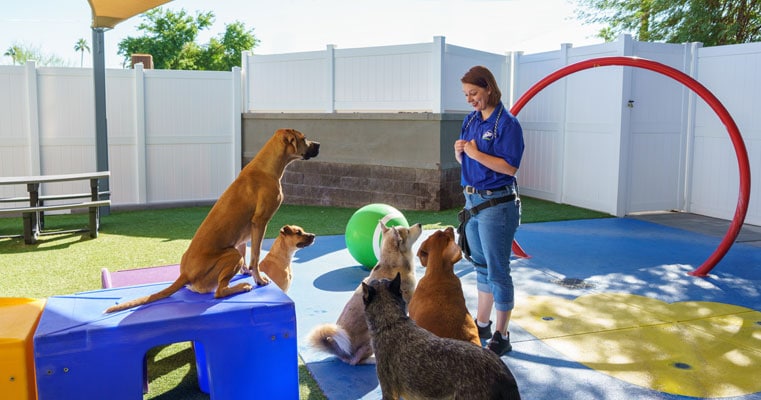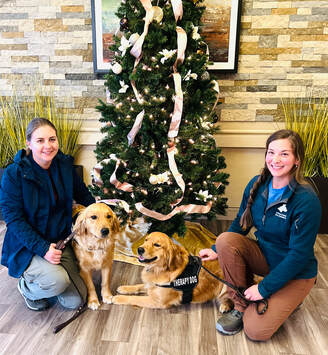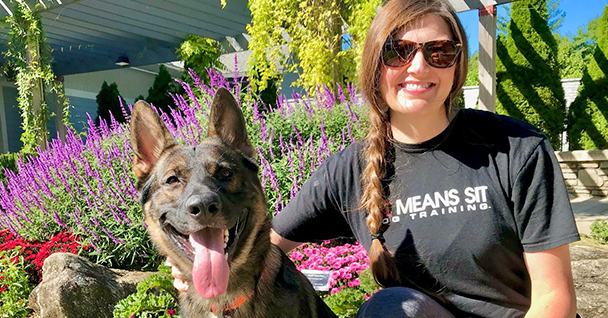The Advantages of Early Dog Training for a Mannerly Animal
The Advantages of Early Dog Training for a Mannerly Animal
Blog Article
Vital Tips for Effective Dog Training: An Overview for Pet Dog Owners
Efficient pet dog training is a complex procedure that calls for a strategic method customized to both the family pet's personality and the owner's purposes. Key components such as establishing consistent commands, utilizing favorable reinforcement, and helping with early socialization play crucial duties in cultivating a well-adjusted canine friend. Lots of family pet owners come across obstacles that can prevent progression, leading to stress and unpredictability. Comprehending exactly how to browse these challenges can substantially improve the training experience, inevitably changing the connection between proprietor and pet. What are the important techniques that can be employed to make certain success in this undertaking?
Understanding Canine Habits
Comprehending pet habits is important for effective training and cultivating a harmonious relationship between canines and their owners. Pets connect largely via body language, articulations, and activities, making it essential for proprietors to interpret these signals precisely. Identifying a canine's position, tail placement, and ear orientation can give insights right into its mood. For instance, a wagging tail does not constantly show happiness; it can additionally signal enjoyment or anxiousness.

Socializing plays a considerable function in pet dog habits; exposure to different atmospheres, individuals, and other animals can substantially influence a pet's personality. In addition, variables such as type characteristics and individual temperament need to lead training techniques, as some types may have certain behavioral traits that demand tailored approaches. By understanding these elements, proprietors can create an encouraging setting that motivates positive actions, causing effective training end results and a deeper bond with their pet dogs.
Establishing Consistent Commands
Reliable interaction with your pet begins with developing constant commands. This fundamental component of training is important for fostering understanding in between you and your pet. Uniformity in the commands you utilize ensures that your pet dog can reliably connect specific words or phrases with the desired actions.
When selecting commands, select clear, distinctive words that are very easy to claim and set apart from each other. Prevent making use of similar-sounding commands that may puzzle your pet dog. Making use of "sit" and "remain" is proper, but "rest" and "hit" can lead to misunderstandings.
In addition, keep the exact same tone and quantity for each command. Canines are sensitive to vocal hints, so differing your tone can produce confusion.
It is equally important to make certain that all family members get on the same page concerning the commands utilized. A united front in command use will certainly stop mixed signals and reinforce the learning process.
Positive Reinforcement Techniques
The power of favorable reinforcement in pet training hinges on its capability to urge wanted habits via rewards and appreciation. This technique is grounded in the principle that actions complied with by positive results are much more likely to be repeated. By incorporating positive support into your training regimen, you can properly form your pet's habits in a constructive way.
To implement positive support, it's important to identify what encourages your pet, whether it be deals with, playthings, or spoken appreciation. When your dog carries out a desired action, such as sitting on command, instantly compensate them with a reward or affection. This organization in between the command and the positive result reinforces their understanding.
It's critical to timing the incentives properly; supplying the reinforcement within seconds of the wanted habits assists your pet make the connection (dog training). Furthermore, consistency is vital-- make sure that all relative utilize the very same commands and benefit systems to avoid complication

Slowly, you can lower the regularity of treats as your pet learns the actions, transitioning to commend or intermittent incentives. This technique not only fosters a solid bond in between you and your pet dog yet likewise advertises a favorable read the full info here knowing environment, making educating a delightful experience for both.
Socialization and Interaction
Consistently subjecting your pet to a selection of settings, individuals, and other pets is crucial for their social development. Socialization should begin early, preferably during the crucial window of 3 to 14 weeks, when puppies are most responsive to new experiences. Older dogs can likewise benefit from ongoing socializing initiatives.
Introduce your pet to different settings, such as parks, pet-friendly stores, and urban locations. This exposure assists them adapt to various stimuli, reducing anxiety and concern reactions. Encourage positive communications with various other pets and individuals, making sure that these experiences are risk-free and regulated to foster confidence.
Utilize structured playdates with courteous dogs, as this can enhance your pet's social abilities and teach them ideal actions. Obedience classes and training sessions likewise offer outstanding opportunities for socialization, enabling your pet dog Full Report to interact with others in a supervised setting.
Screen your pet's body movement during interactions, as this will help you gauge their convenience level. Progressively enhance exposure to more difficult scenarios while guaranteeing that each experience declares. A well-socialized dog is a lot more most likely to display well balanced habits, making them a pleasure to have in any type of setting.
Dealing With Usual Training Obstacles
Every dog owner will certainly come across training difficulties at some factor, regardless of their canine's age or socialization level. Recognizing common problems such as stubbornness, distractions, and terror can assist in establishing reliable approaches for renovation.

Progressively introduce diversions as the pet comes to be a lot more efficient in commands. Short, regular training sessions are additionally efficient in maintaining focus.
Fearfulness can prevent a dog's discovering procedure. Progressive desensitization to the resource of worry, paired with favorable support, can aid ease stress and anxiety. Perseverance is critical; never compel a pet right into a scenario that creates distress, as this may worsen the problem.
Ultimately, understanding and dealing with these usual obstacles with a structured approach will cultivate a much more effective training experience, reinforcing the bond in between pet dog and proprietor while promoting effective learning.
Verdict
In summary, successful dog training counts on a comprehensive understanding of canine behavior, the establishment of constant commands, and the application of positive support strategies. Socializing plays a crucial function in creating well-adjusted pets, while dealing with common training difficulties calls for persistence and adaptability. By applying these crucial strategies, animal owners can promote a strong bond with their dogs and promote preferable habits, eventually bring about a harmonious partnership in between people and their canine friends.
Understanding pet actions is necessary for efficient training and fostering an unified partnership in between dogs and their proprietors.Socializing plays a considerable role in canine actions; exposure have a peek at these guys to numerous environments, individuals, and various other animals can substantially affect a pet dog's personality.The power of favorable reinforcement in dog training exists in its ability to motivate preferred behaviors through incentives and appreciation. By integrating favorable support right into your training regimen, you can properly form your pet dog's behavior in a constructive manner.
In recap, effective pet dog training depends on an extensive understanding of canine behavior, the facility of regular commands, and the application of positive support techniques.
Report this page